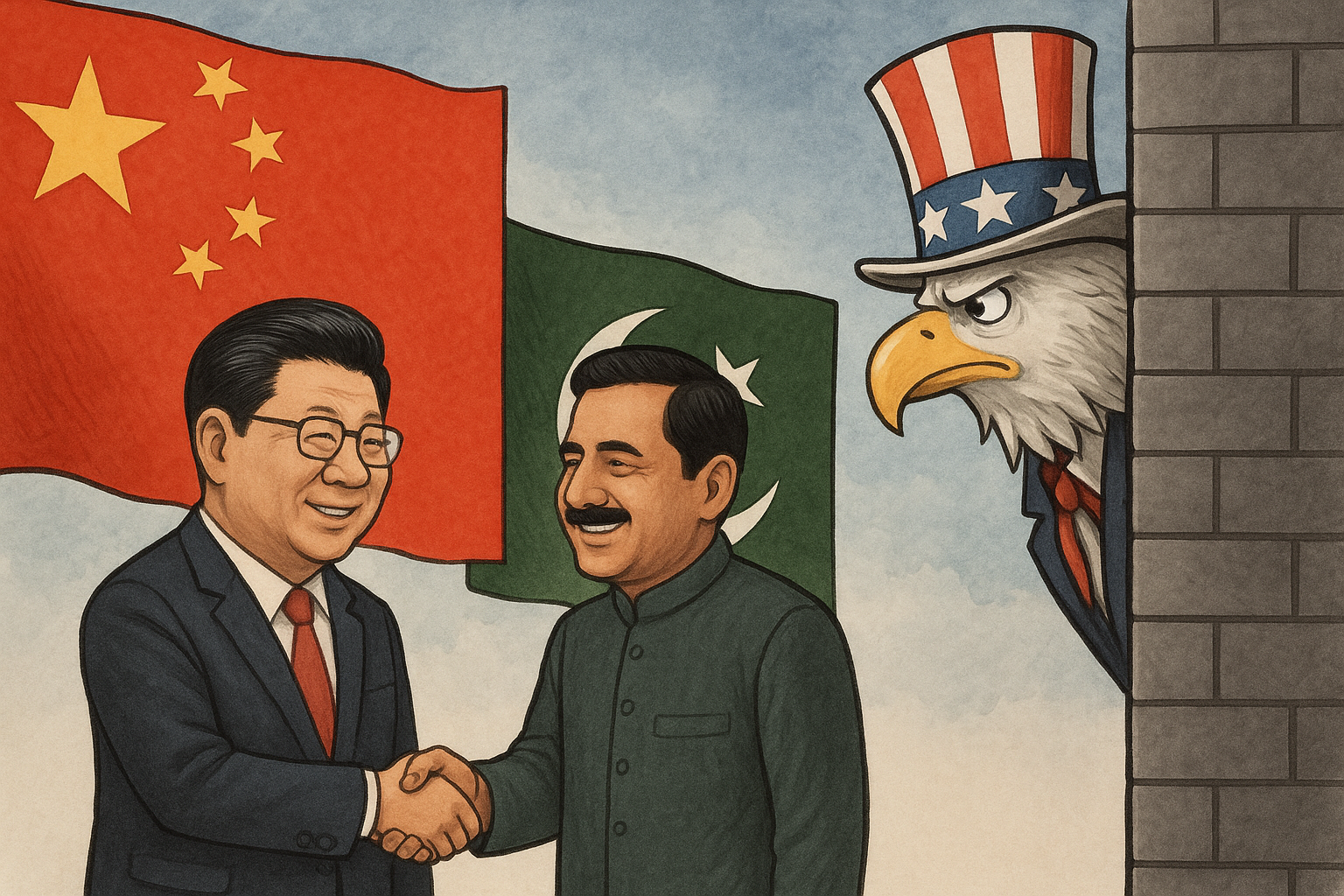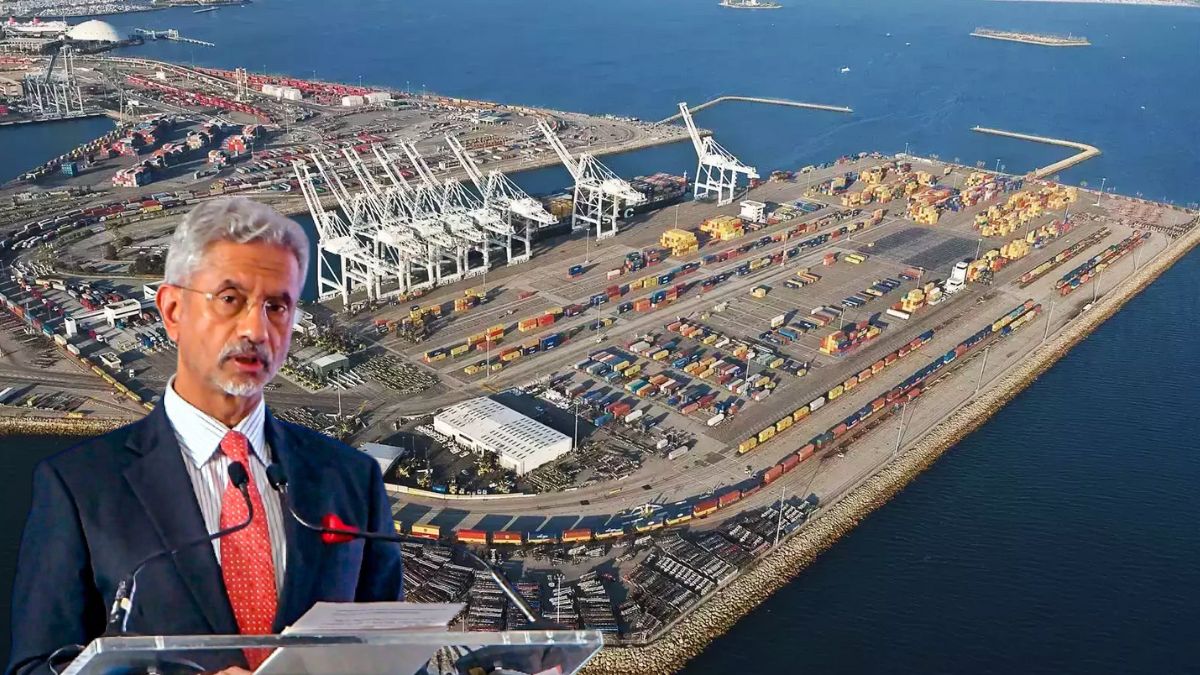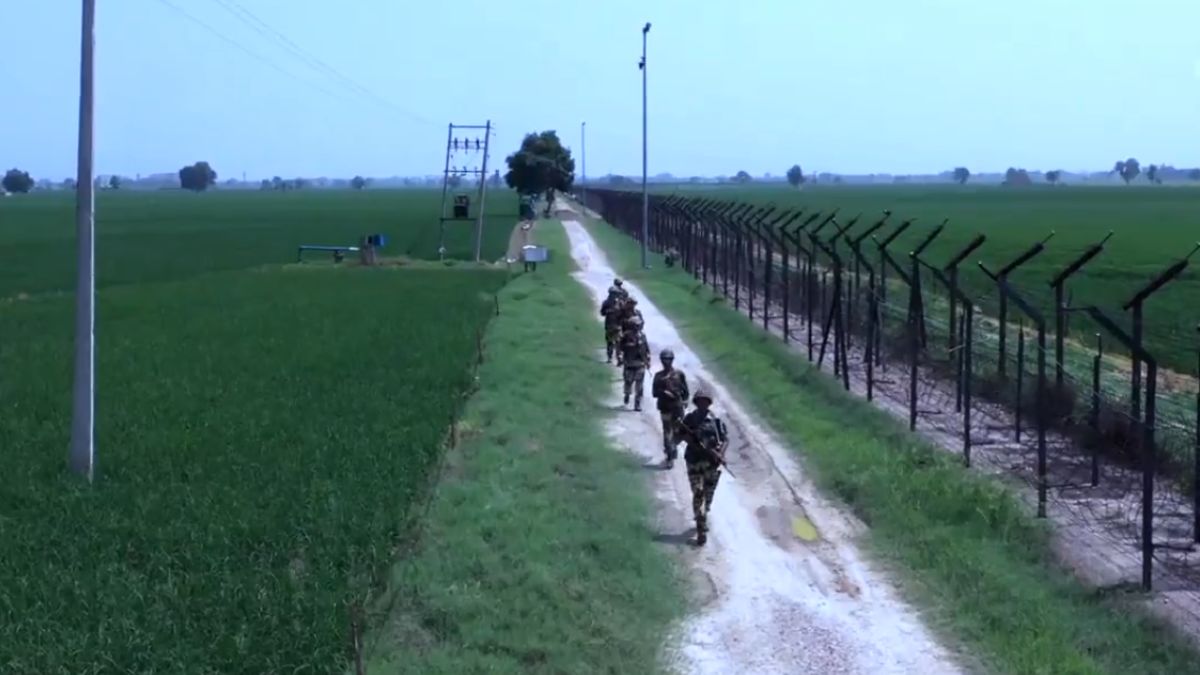‘Not Just About China’: Pakistan Seeks Independent Ties with US Amid Great Power Rivalry

Pakistan is seeking independent ties with the US amid great power rivalry (Image Courtesy: Representative pic made using AI)
Pakistan’s Deputy Prime Minister and Foreign Minister Ishaq Dar has called for a recalibration in how Washington views its bilateral ties with Islamabad, urging the United States not to see Pakistan solely through the prism of its deepening ties with China.
Speaking at the Pakistan Consulate in New York on July 28, following his meeting with US Secretary of State Marco Rubio, Dar said, “We stress, and will continue to do so, that the Pak-US relations must not be viewed via the lens of our relations with iron-clad brother China.”
This meeting marked a symbolic thaw, the first high-level foreign ministers’ dialogue between the two nations in nine years. It also comes at a critical juncture for Pakistan, which is trying to recover from diplomatic fatigue and economic instability, even as it balances its long-standing strategic partnership with China and seeks greater engagement with the West.
Is Pakistan reclaiming diplomatic space?
Dar’s remarks are part of a broader strategy by Islamabad to project a more balanced foreign policy posture after years of geopolitical tilt toward Beijing under the China-Pakistan Economic Corridor (CPEC).
While China remains Pakistan’s primary economic and defence partner, Islamabad is increasingly aware of the dangers of overdependence, particularly in the wake of Beijing’s slowing economic influence and growing global pushback against Chinese debt diplomacy.
By stating its intention to deepen US-Pakistan relations independently of China, Pakistan is also signaling to Washington that it values its historical defence, counter-terrorism, and economic cooperation with the United States.
This is especially relevant as Washington recalibrates its South Asia strategy in the aftermath of its withdrawal from Afghanistan and amid its broader Indo-Pacific framework targeting Chinese influence.
Is the US wary, and Pakistan ambitious in their ties?
Despite Pakistan’s outreach, US policymakers remain cautious. Washington continues to be wary of Pakistan’s past support to the Taliban and concerns over nuclear proliferation. However, the Biden administration and now Secretary Rubio have shown openness to selective engagement, especially on counterterrorism, climate resilience, and trade.
The geopolitical backdrop, defined by intensifying US-China rivalry, places Pakistan in a tight spot. Islamabad wants to retain Beijing’s economic support while reviving economic and security ties with the West.
This hedging strategy is not new but has gained urgency as Pakistan seeks to attract IMF tranches, avoid grey-listing by the FATF again, and stabilise its global image.
What are the geopolitical implications for the US, Pakistan, and China?
Dar’s comments reflect a wider trend of middle-power diplomacy wherein countries like Pakistan, Türkiye, and the Gulf states are seeking greater strategic autonomy amid a multipolar world.
Pakistan’s re-engagement with the US also aligns with Saudi Arabia and the UAE recalibrating their ties with both Washington and Beijing, underscoring a regional trend where traditional allies are asserting more independent foreign policies.
Additionally, Pakistan’s overture comes as India — America’s key strategic partner in the Indo-Pacific — continues to deepen its ties with the US, raising concerns in Islamabad about being sidelined in regional security architectures.
Is the ‘US or China’ dilemma a Hobson’s Choice for Pakistan?
Ishaq Dar’s statement and the resumed high-level contact between Pakistan and the US signal a potential shift in Islamabad’s foreign policy posture.
As global geopolitics becomes more fragmented and competitive, Pakistan is trying to reinsert itself as a relevant player — not as a satellite of China, but as a sovereign actor seeking strategic balance.
Whether Washington buys into this narrative remains to be seen, but the door to diplomatic revival appears slightly ajar.







